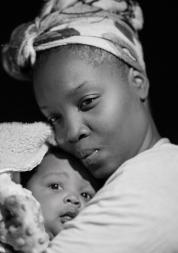Young People: Listening to how they keep healthy

Summary
Adolescence is a critical period of development for young people and their health. This age typically marks the beginning of risk-taking behaviour, the start of a sexual life, and a time when life-long health behaviours are set in place. Ensuring the social and emotional wellbeing of young people and enabling them to make informed choices and access timely support will increase their chances of achieving their full potential as they move into adulthood.
The purpose of this piece of engagement was to explore what young people know and practice in relation to keeping themselves healthy and happy, with the aim of using the results to help inform the direction of our future young people’s workstream.
Specifically, we were looking to learn about:
- What young people know and understand about keeping healthy (physically, emotionally, psychologically, sexually) and what support might be available to them
- The barriers and enablers to practicing ‘healthy’ behaviours
- Young people’s suggestions as to how their concerns or issues could be addressed within the school environment or otherwise.
16 interviews were conducted from August to mid-October 2016 from members of Knight’s Youth Centre (Streatham), the Well Centre (Streatham), St Matthew’s Project (Brixton) and Marcus Lipton (Loughborough). We spoke to three females and 13 males aged between 16 and 18 years and all but one was of African or Caribbean heritage (including three individuals who described themselves as mixed race).
Key findings
-
Sexual Health: We found that almost all the young people we spoke to were sexually active, most losing their virginity from 14 years, with one who had done so at 11 years.A few interviewees explained that their use of condoms was “nearly all the time” or “75% of the time”. A couple of young men explained that if they did not have access to a condom, they would ‘pull out’, seeing this as an alternative contraceptive method: “even if she says she's on the pill
-
Mental Health: When we asked young people about the times when they felt worried or anxious, we heard that many felt this way when they thought about the future and what it held for them with regards to finding a job and earning money. Some talked of their ambition to leave the area and get away but felt that there were few opportunities to do so: “Just thinking about the options and choices in London, especially South. There's not much….. Not enough options to do anything really. I want to be rich one day and bring the closest people with me.”
-
Youth workers: We also spoke to a total of nine youth workers from Knight’s and Marcus Lipton youth clubs to listen to their views as to what support they felt young people needed, and how well they felt they were able to deliver this. The youth workers we spoke to varied in age - 19 to 38 years old, and in experience - some were new trainees with limited work experience to others who had worked in youth work roles across several London boroughs over 15 years.
Our conversations with young people revealed a mix of experiences and attitudes towards keeping healthy. Even though our sample was small, it was reassuring to hear that the majority of young people interviewed were practicing ‘safe sex’ and spoke responsibly about drinking alcohol and smoking cannabis. However, we are concerned about the levels of anxiety that these young people spoke to us about, which seems to be related to their perceptions of a lack of future opportunity and also heavily influenced by the insecurity that some experience in the neighbourhoods that they live in.
Downloads
If you need this report in a different format, please contact us
info@healthwatchlambeth.org.uk
020 7274 8522
